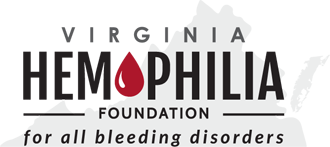It’s advocacy season, and we invite you to join us in making a difference for the bleeding disorders community. This is the time of year when we come together to ensure that the voices of our community are heard by state legislators. With your help, we can advocate for policies that improve access to care, resources, and support for individuals and families impacted by inherited bleeding disorders. Ready to get involved? Visit our calendar page for more details and to register for these events. Let’s make advocacy season count!
Here’s how you can get involved this January:
Virginia General Assembly Weekly Check-Ins
January 14, 2025 – February 18, 2025 | Virtual via Zoom
Join VHF and the Hemophilia Association of the Capital Area (HACA) for informal, weekly check-ins throughout the Virginia General Assembly session. Our advocacy consultant, Becky Bowers-Lanier, will provide an overview of the week’s legislative events, share insights on trends, and highlight any actions needed on proposed legislation that could impact our community. Open to all community members.
Advocacy Education Training
January 21, 2025 | 7:00 pm – 8:00 pm | Virtual via Zoom
Prepare to make your voice heard with this virtual advocacy training session. Learn about proposed legislation and state policy issues that focus on access to quality healthcare. Whether or not you plan to attend Richmond Days, this training will empower you to engage effectively with legislators and make a meaningful impact.
Richmond Days
January 27, 2025 | 9:00 am – 10:30 am | General Assembly Building, Richmond, VA
Take your advocacy to the next level by joining us in person for Richmond Days! This annual event provides an opportunity to meet with state legislators and share the unique needs of the bleeding disorders community. Your participation can directly influence policies that improve the lives of individuals with bleeding disorders.
These events are open to all community members, whether you are new to advocacy or a seasoned advocate. Together, we can make a difference by standing up for policies that ensure access to quality care and support for those living with bleeding disorders.
